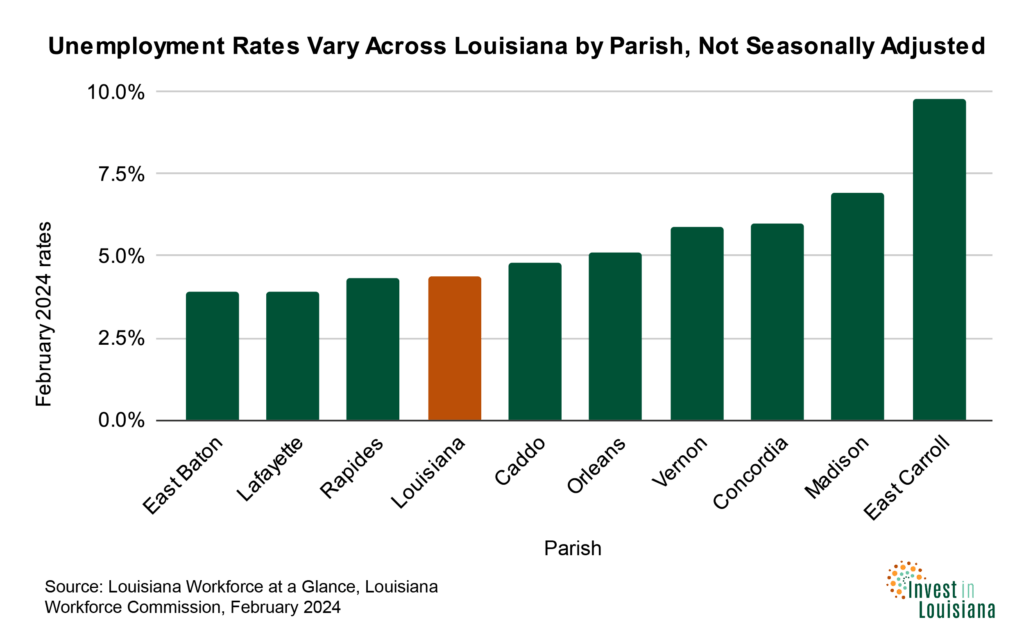Unemployment insurance provides temporary financial assistance for people who have lost their jobs through no fault of their own. House Bill 119 by Rep. Troy Romero would radically change our state’s unemployment insurance system, drastically cutting benefit duration and increasing hardships for people when they need help the most.
Under current law, Louisiana workers who are laid off or experience an interruption in their employment may qualify for up to 26 weeks of unemployment benefits. Romero’s bill seeks to reduce that to as little as 12 weeks, and ties the duration of benefits to the state’s unemployment rate. The longest anyone could receive benefits is 20 weeks.
Benefit amounts are based on many factors, including wages earned and employment duration during the recent past. In 2024 the maximum weekly benefit is $275, and the average weekly benefit is $245. Workers must be able and available for suitable work, must file weekly claims for benefits and must comply with work search requirements to maintain eligibility. Additionally, the Louisiana Workforce Commission helps unemployed people with programs focused on getting them back to work as quickly as possible.
Reducing the duration of benefits would have a negative impact on Louisiana families. The average Louisiana worker who collects unemployment claims benefits for about 14 weeks during a 52-week eligibility period. Still, almost one-third1 of Louisiana workers receiving unemployment benefits exhaust their claims, according to the U.S. Department of Labor. Reducing benefit duration disproportionately hurts Louisiana’s Black and brown workers, as they can face discriminatory hiring processes and often have more difficulty finding new employment than their white counterparts.2
The bill’s supporters claim that cutting benefits will incentivize people to get back to work more quickly; however, no evidence exists to support this claim. Tying the duration of benefits to the state unemployment rate would also affect Louisiana’s workers differently based on where they work. Louisiana is a diverse state with different economic drivers, and the unemployment rate can vary widely among different communities and regions.

While unemployment in parishes like East Baton Rouge, Lafayette, and Rapides fall below the state unemployment rate of 4.4%, other parishes experience much higher rates of unemployment, with parishes like East Carroll reporting an unemployment rate of 9.8%. Under this one-size-fits-all framework, a person who loses their job in rural northeast Louisiana, where jobs are often scarce and the unemployment rate is high, could get their benefits cut off because the unemployment rate is low in other parts of the state.
Unemployment insurance is a crucial financial protection for Louisiana workers when they fall on hard times through no fault of their own, and the benefits that people receive support businesses in every Louisiana community. Instead of cutting benefits, the Legislature should look for ways to strengthen our unemployment insurance system so it is there when Louisianans need help.
